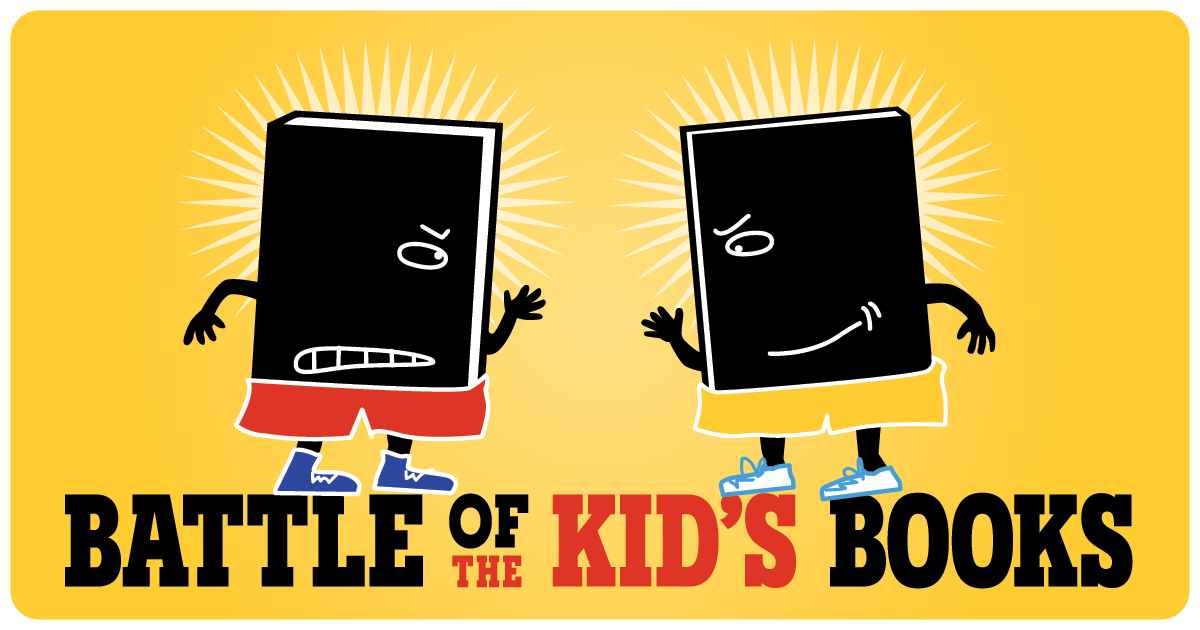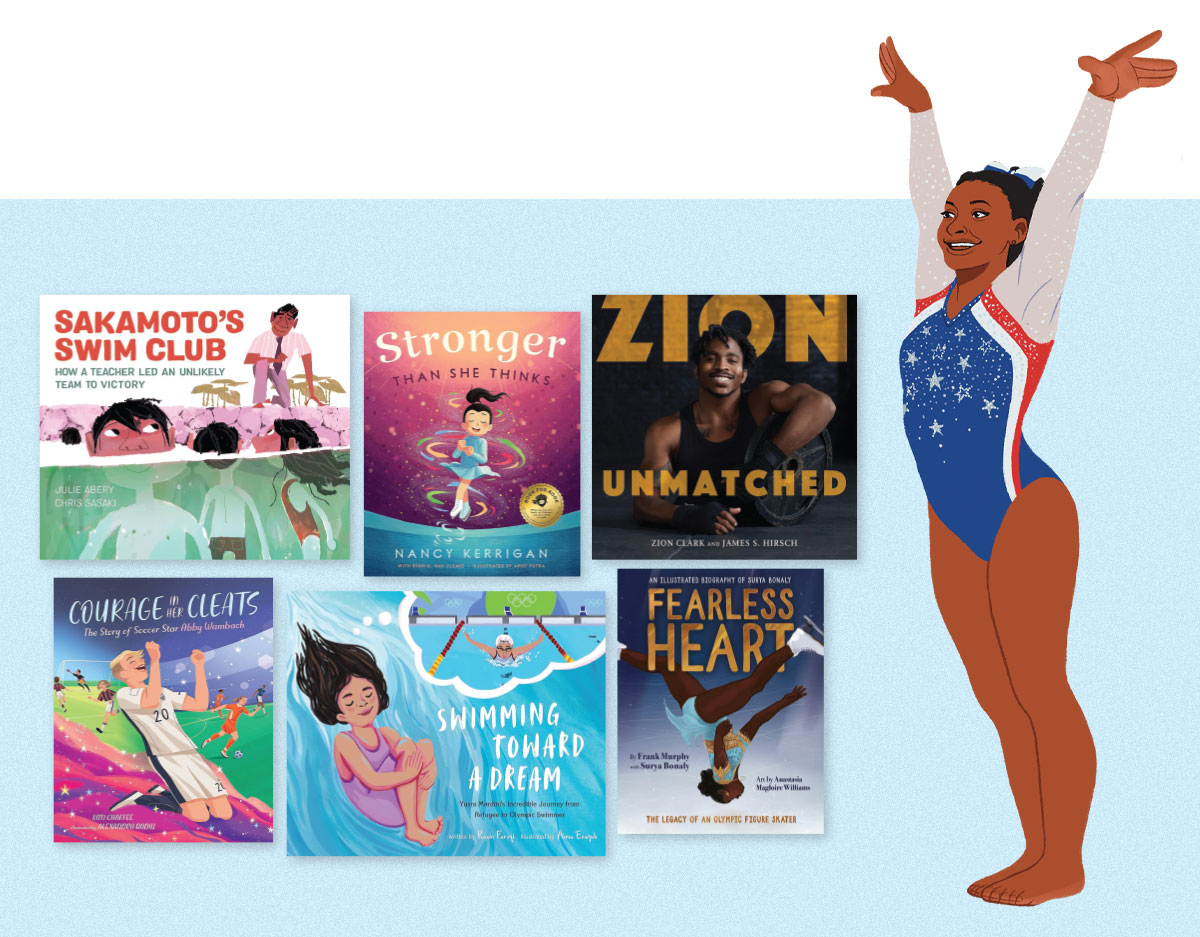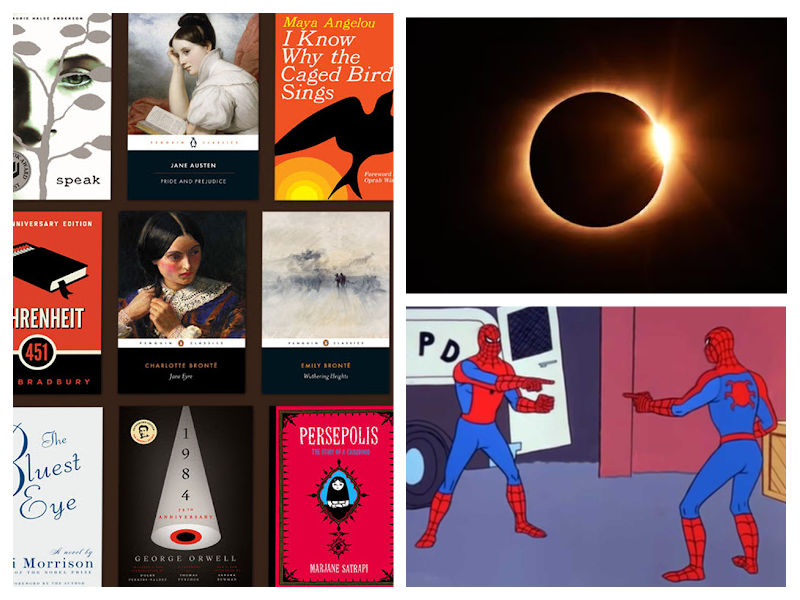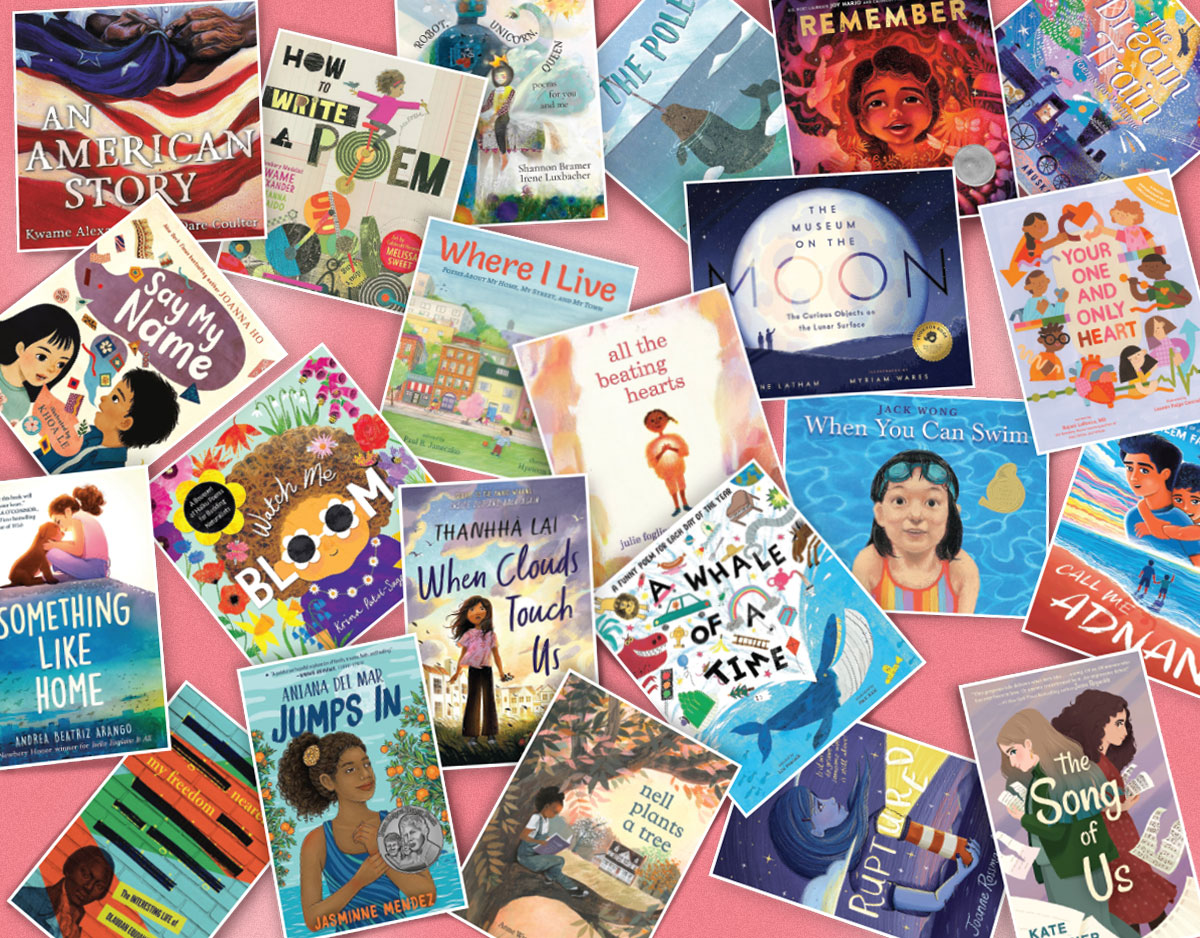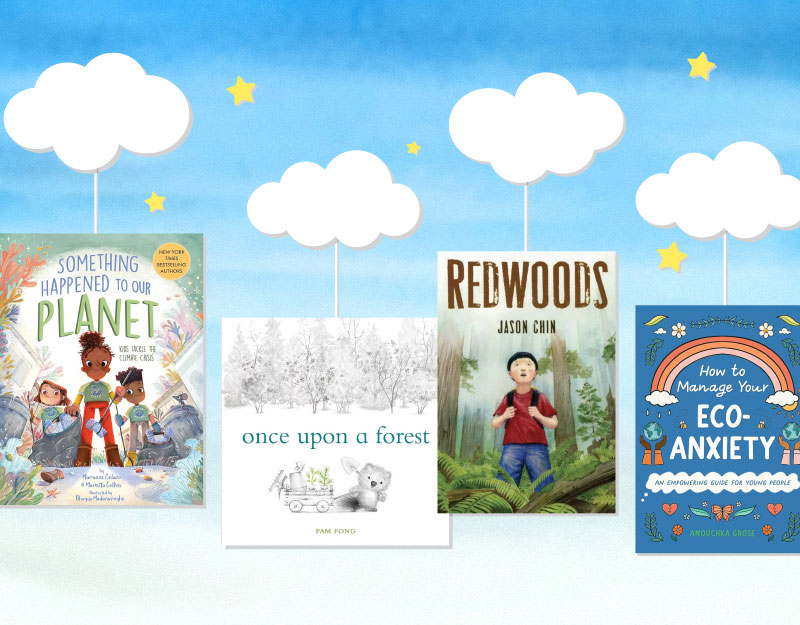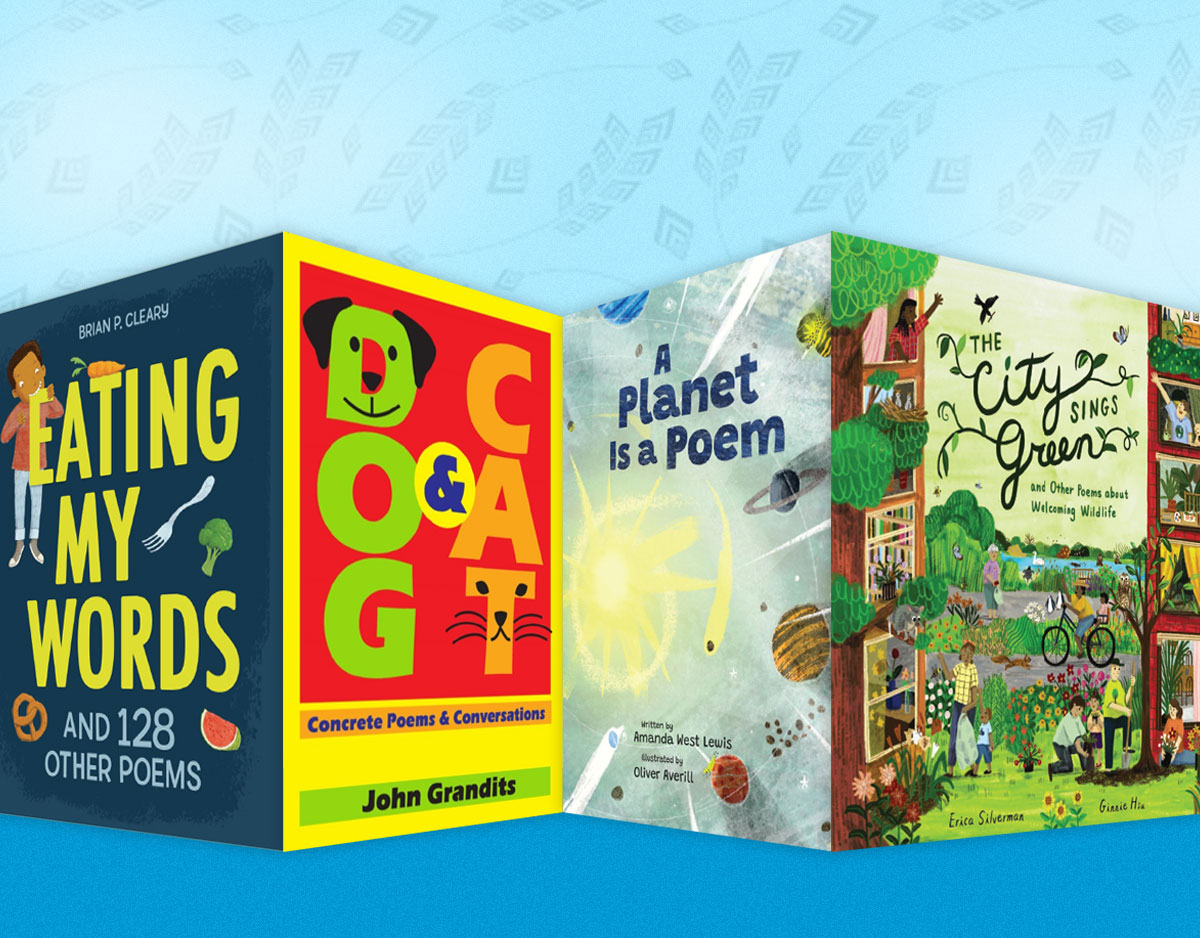SCROLL DOWN TO READ THE POST
Round 1, Match 4: Far Far Away vs Flora and Ulysses
| Far Far Away by Tom McNeal Knopf/Random House |
Flora & Ulysses by Kate DiCamillo Candlewick Press |

Once upon a time, on a couch in my apartment, there were two books, Flora & Ulysses by Kate DiCamillo and Far Far Away by Tom McNeal. One book I liked. The other I loved. One I can’t wait to read to my daughters. The other I’m planning on hiding from my daughters until they’re at least twenty-seven.
Let’s start with Flora & Ulysses. The novel begins with a truly inventive and hilarious premise: A squirrel is sucked up by a fancy vacuum cleaner and turned into a superhero. I love a good superhero story—and this superhero doesn’t just fly or set things on fire. He can type and write poetry. He’s a literary superhero. Sigh. My hero.
Ten-year-old Flora is a comic book lover and according to her mother “a natural-born cynic.” Her cynicism is partly due to the recent divorce of her father, who Flora refers to as “the world’s loneliest man,” and her romance-writer mother. After witnessing the squirrel’s transformation, Flora names him Ulysses and befriends him. Life is looking up. Or it would be if Flora’s mother wasn’t trying to kill Ulysses and stuff him in a garbage bag.
Flora & Ulysses is undeniably adorable. Sprinkled throughout the book are delightful illustrations and comic book strips by K.G. Campbell. Ulysses is sweet and funny and exuberant. And I related to Flora. Make that, I really related to Flora. Her mother writes romance novels. My mother wrote romance novels! Her parents got divorced when she was a kid. My parents got divorced when I was a kid! In the divorce’s aftermath, Flora is drowning in anger/resentment/sadness/confusion/hopelessness/doom. Ditto. Also, my pet turtle “disappeared” one day and the details are still murky (although I suspect my dad). I’ve read a lot of books about how kids deal with divorce, and this one nailed it. It felt emotionally raw and completely authentic.
But as charming as Ulysses is, and as much as I related to so many things about Flora, I wished I hadn’t anticipated exactly what was going to happen and what piece of furniture would have to break for it to take place. And while the book’s subject matter hit my sweet spot, the precociousness of the kids (they use words like “sepulchral” and “treacle”) and the quirkiness of all the characters did not. At times the book felt like the adaptation of a Wes Anderson movie, which, for most writers I know, would be the greatest of compliments. But I’ve always found Anderson’s heightened artificiality distracting—all that precocity and quirk throw me out of the story. In Flora & Ulysses, quirk is omnipresent. The boy next door constantly refers to himself by his full name, William Spiver. The dad introduces himself every time he walks through a door. Dr. Meescham is from Blundermeecen and has a horsehair sofa. I feel the same way about quirk as I do about salt: A little goes a long way. And this book is an ocean.
That said, Flora & Ulysses is well-crafted, fast-paced and full of heart. And I love the message that anything is possible. My oldest daughter is five and I can’t wait to share it with her in a few years. I have no doubt that she’ll find the idea of a flying, typing, poetry-writing squirrel hysterical.
Far Far Away has what at first seems like its own hearty helping of quirk. In the very beginning, we discover that the story is being narrated by the ghost of Jacob Grimm. Yes, that Jacob Grimm. I was skeptical. While imaginative, it seemed like a gimmicky and possibly unnecessary choice. I was also confused about the tone and the setting. On the one hand, the world felt fantastical and old-fashioned. The “village” where the story takes place has a town baker who makes magical pastries and is so tough to find, it “can only be seen from the corner of the eye.” Yet the world also felt oddly contemporary. Characters call things “freaking fabulous” and watch game shows. But as I turned the pages, the setting and narrator choice began to feel right to me. Many of the original fairy tales have one foot in the real world and one in fantasy, so why shouldn’t this? And the original tales were collected and recounted by the Grimms. Wasn’t a ghostly Grimm narrator the perfect way to let a modern tale be recounted by one, too? As I got deeper into the story, the unusual narrator—and the unique tone and setting that came along with it—felt less like a gimmick and more like a stroke of genius.
The book’s pace was slower than that of Flora & Ulysses, and the writing denser. Things happen, but gradually, and are often interrupted with tangents and backstories. Luckily, there is a ton of foreshadowing to keep the tension tight. On the very first page we’re told that one character has “tendencies so tortured and malignant” that Grimm can barely talk about them. “I will though,” he says. “It is a promise. I will.” About halfway through the book I started to worry: Where was this evil that kept being hinted at but had yet to appear? Jacob Grimm was narrating this story! When Jacob Grimm—he of the chopped off heads (“Twelve Dancing Princesses”), red-hot iron shoes (“Snow White”) and pigeon-pecked out eyes (“Cinderella”) —tells me things are about to get scary, I believe him. But maybe they wouldn’t? This was a book for young readers after all…
Oh, boy.
I shouldn’t have worried. Or maybe I should have—all the foreshadowing paid off. Without giving anything away, I will say that by the time I finished the book, I was shocked, amazed and officially creeped out.
Far Far Away is a page-turning mystery. It’s a classic ghost story. It’s a sweeping epic. It’s also a bromance and a romance. Definitely a PG romance, but the banter is fun and the attraction believable. Flora & Ulysses is a love story, too. While I wasn’t sold on the connection between Flora and William Spiver (maybe I was too distracted by the quirk?), the love between Flora and Ulysses felt tender and true.
It’s hard to avoid the audience question. Flora & Ulysses is squarely middle grade, for 8-12-year-olds, but who is the ideal reader for Far Far Away? It’s pitched as 12 and up, but are teens interested in the fairy-tale tone and chaste romance? On the other hand, the themes seem way too dark for middle grade. Honestly, I don’t think I’ll be sharing Far Far Away with my daughter for at least a decade. In fact part of me doesn’t want her to read it ever. As a parent I can’t help but want to protect her from the grim (couldn’t resist) fact that evil can, and does, lurk everywhere.
So who’s the ideal reader for this daringly original combination of fairy tales, innovative narration, gruesome plot twists, first love and shocking endings? Me. I couldn’t put Far Far Away down. It was brilliant. It was thrilling. It held me captive, and still hasn’t let go.
The bottom line? Flora & Ulysses might be an easy sell to kids, but Far Far Away blew me away. Winner: Far Far Away.
— Sarah Mlynowski

The Newbery Curse strikes once again – deservedly? I love “quirk.” And I also love haunting fairy tales. Pretty much at a loss with this one…two of the best books against each other in the first round…In fact, I’d really like it if Ulysses managed to pull off some theatrics right now, and display some of the book’s great quirk. Flora & Ulysses is, like Hokey Pokey and True Blue Scouts, a hilarious burst of childhood optimism on the verge of collapse. Powerful stuff for a nostalgic 14-year-old. Not to degrade Far Far Away, which also had wonderful imagination, characters, and humor and was a very well done book indeed – maybe, for me, just not quite as fantastical. But I’d still pick the Brothers Grimm over Eleanor and Park to battle with Little Bao (or The Animal Book) for the finals.
– Kid Commentator RGN
THE WINNER OF ROUND 1 MATCH 4:
FAR FAR AWAY
About Battle Commander
The Battle Commander is the nom de guerre for children’s literature enthusiasts Monica Edinger and Roxanne Hsu Feldman, fourth grade teacher and middle school librarian at the Dalton School in New York City and Jonathan Hunt, the County Schools Librarian at the San Diego County Office of Education. All three have served on the Newbery Committee as well as other book selection and award committees. They are also published authors of books, articles, and reviews in publications such as the New York Times, School Library Journal, and the Horn Book Magazine. You can find Monica at educating alice and on twitter as @medinger. Roxanne is at Fairrosa Cyber Library and on twitter as @fairrosa. Jonathan can be reached at hunt_yellow@yahoo.com.
ADVERTISEMENT
SLJ Blog Network
2024 Books from Coretta Scott King Winners
The Ultimate Love Letter to the King of Fruits: We’re Talking Mango Memories with Sita Singh
Double Booking | This Week’s Comics
The Tortured Poets Department Poetry Packs for National Poetry Month and Album Release (April 19)
The Classroom Bookshelf is Moving
ADVERTISEMENT
ADVERTISEMENT

